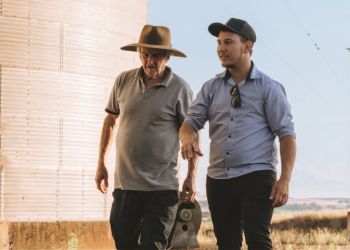 Would your work be enhanced by implementing strategies to leverage community resources for cancer prevention, early detection, and treatment? Could cancer outcomes in your community be improved through partnerships that focus on promoting healthy lifestyles, ensuring access to screenings and diagnostic technologies, and improving the quality of treatment and support services to enhance survivorship? Using the approach of comprehensive cancer control (CCC) could help achieve these goals. CCC brings together key partners and organizations to develop a plan to reduce the number of community members who are diagnosed with or die from cancer. The CCC plan focuses on cancers that cause the most burden in the community, and uses methods that have worked in similar communities to prevent and control these cancers.
Would your work be enhanced by implementing strategies to leverage community resources for cancer prevention, early detection, and treatment? Could cancer outcomes in your community be improved through partnerships that focus on promoting healthy lifestyles, ensuring access to screenings and diagnostic technologies, and improving the quality of treatment and support services to enhance survivorship? Using the approach of comprehensive cancer control (CCC) could help achieve these goals. CCC brings together key partners and organizations to develop a plan to reduce the number of community members who are diagnosed with or die from cancer. The CCC plan focuses on cancers that cause the most burden in the community, and uses methods that have worked in similar communities to prevent and control these cancers.
Through funding from the American Cancer Society, NACCHO has worked to implement CCC strategies at the local level. Since, 2008, NACCHO has engaged local health departments (LHDs) to study the elements of successful cancer prevention coalitions led and managed by LHDs. NACCHO supports local-level comprehensive cancer prevention and control efforts by encouraging strategic partnerships between state cancer coalitions and LHDs funded by the Centers for Disease Control and Prevention’s National Comprehensive Cancer Control Program (NCCCP). Such collaboration helps to ensure synergy between state and local cancer priorities that is necessary to expand provision of community-clinical linkages for cancer prevention and treatment as well as disseminate evidence-based policy, systems, and environmental change strategies to reduce the cancer burden.
NACCHO also works to increase awareness of LHDs as key partners in local implementation that can boost state planning efforts via collaboration with other important national and local stakeholders. Ultimately, the goal is to build a sustainable model for local implementation of CCC that will help local health officials integrate state cancer priorities into local cancer prevention efforts.
Local stakeholders, such as community residents and local business owners, have the influence and relationships necessary to leverage community support to implement state CCC plans at the community level. LHDs are proximal to the communities where CCC occurs; due to that proximity, LHDs have existing relationships with local stakeholders that make them a logical fit as CCC coalition leaders. Local stakeholders can provide access to high-risk populations, influence inclusion of CCC efforts in community health programming, and influence the decisions of policymakers to achieve national outcomes. LHDs can work with state coalitions carrying out local efforts to organize local stakeholders and increase the reach, impact, and sustainability of statewide efforts. More information about the role of LHDs can be found in the NACCHO factsheet, Solutions for Local Comprehensive Cancer Control.
NACCHO’s Local Comprehensive Cancer Control Toolkit [ed. note: no longer available – see NACCHO’s Building Local Comprehensive Cancer Control Coalitions guide] has resources that can help state and local cancer prevention coalition partners develop and lead collaborative efforts to prevent cancer. The toolkit includes NACCHO’s Framework for Local Comprehensive Cancer Control, which is a great resource that offers tools and tips that cancer prevention practitioners can use to synergize local and state efforts to implement effective CCC strategies at the local level.
Additional information is available via NACCHO’s Action Guide for Building Successful and Sustainable Cancer Coalitions. The action guide contains lessons learned from local health officials who have successfully implemented local coalitions to reduce the cancer burden in their communities.
Finally, the action guide, Local Implementation Capacity among National Comprehensive Cancer Control Program (NCCCP) Coalitions, highlights factors that hinder CCC specific partnerships among LHDs, other local stakeholders, and NCCCP-funded coalitions at the state level.
For more information, please contact NACCHO’s Chronic Disease team at [email protected] or visit NACCHO’s Chronic Disease webpage on cancer at this link.








